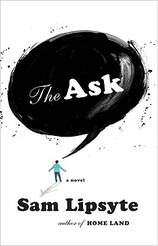From his Q & A with David Ulin about the latest installment of the Tales of the City series, Mary Ann in Autumn:
Jacket Copy: Now that you’ve returned to "Tales of the City," is it safe to assume that you'll continue to write additional installments?Learn about Armistead Maupin's favorite poem and his hero from outside literature.
Armistead Maupin: I don't know. Having written it as a daily serial in a newspaper, which I felt tremendously strapped by, I never wanted to put myself in that position again. But I can't seem to stop.
JC: You've said all the characters in "Tales of the City" are you, to some extent.
AM: They are.
JC: But Mary Ann especially so?
AM: Well, Laura Linney took a huge burden off me by inhabiting her so well in the miniseries that I now think of Laura when I write Mary Ann. I don't hear my own voice, and I like having that distance.
JC: What do you and Mary Ann have in common?
AM: We're pleasant on the outside, but inside, the wheels are turning and judgments are being made. I suppose I'm as picky as she is about the people she hangs out with. I don't know how to put it exactly, but her internal monologue is often mine.
JC: How did the serial come about?
AM: A woman named Virginia Westover, who was the society columnist for the San Francisco Chronicle, had been at a party where [Chronicle columnist] Charles McCabe was present. And Charles was kind of drunk and...[read on]
--Marshal Zeringue































